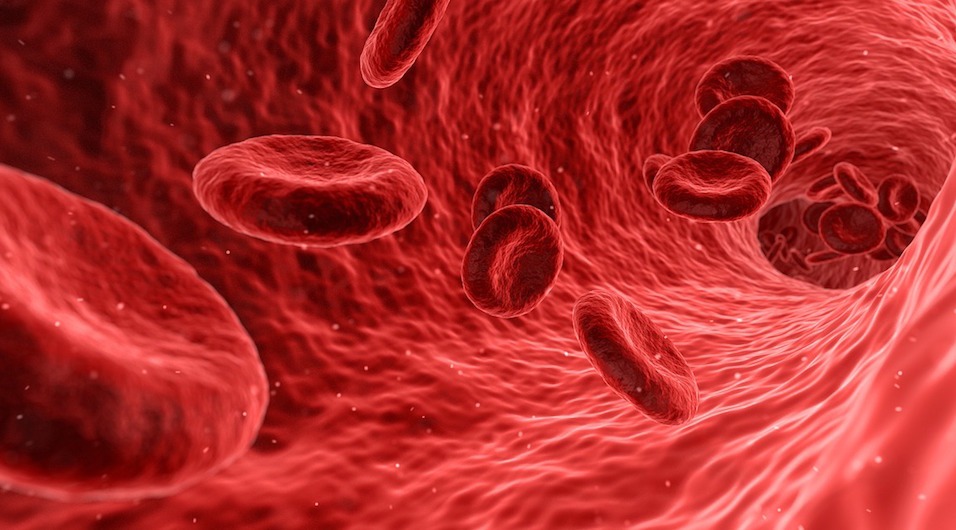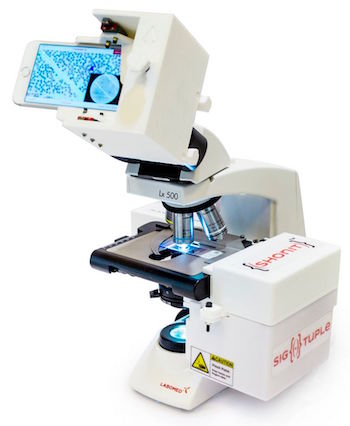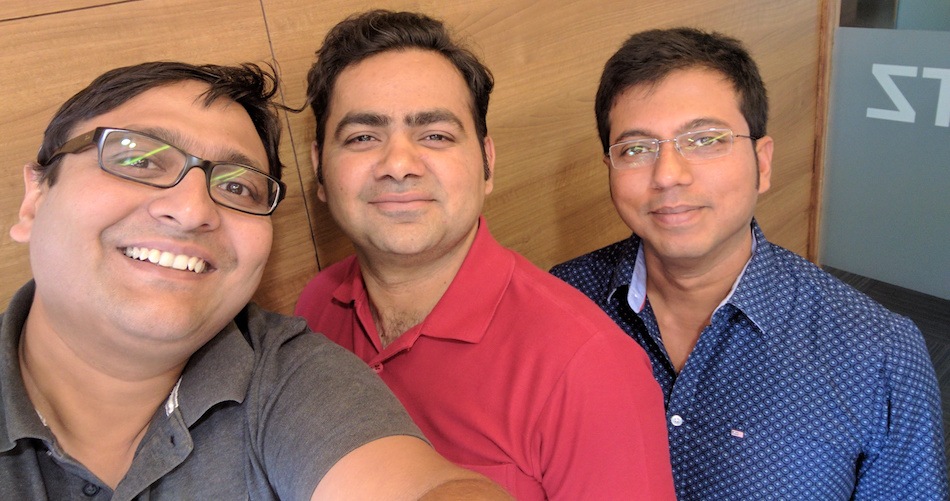
Photo credit: Pixabay.
The World Health Organization requires a pathologist to spend 20 minutes examining a blood smear on a slide under a microscope before ruling out malaria if no parasites are seen. You can imagine how fatigue, an urge to get home, or some other distraction can disrupt that requirement – and the consequences of the disruption. Wouldn’t it be better for everyone concerned if the spotting of parasites could be automated? That’s the sort of thing healthcare AI startup SigTuple does.
Today SigTuple, which uses computer vision and artificial intelligence for diagnosis, announced series A funding of US$5.8 million. This is the largest investment in a healthcare AI startup out of India. It will help SigTuple scale up and go global.
Accel Partners led the round. Other investors include IDG Ventures India, Pi Ventures, Axilor Ventures, and Endiya Partners. Solid backing for the Bangalore-based startup from marquee investors signals the arrival of Indian AI on the world stage. Ex-Googler Amit Singhal, who is now senior VP with Uber, and WhatsApp’s Neeraj Arora also invested. Flipkart co-founders Sachin Bansal and Binny Bansal, who joined Accel in SigTuple’s initial funding of US$740,000, participated in this round too.
The prolonged diligence process was a ripple effect of the shutdown of “nano-prick” blood-testing firm Theranos in Silicon Valley.
It took several months of discussions before the series A round could be closed, SigTuple co-founder and CEO Rohit Kumar Pandey tells Tech in Asia.
Partly, the prolonged diligence process was a ripple effect of the shutdown of “nano-prick” blood-testing firm Theranos in Silicon Valley, after its faulty results to patients were exposed. As SigTuple’s first product Shonit was for blood tests, the Theranos question would immediately pop up.
Unlike Theranos, which came up with new testing models with smaller blood samples, SigTuple uses the same tests and slides for examination and diagnosis as pathologists do, explains Rohit. It only automates the process for more consistent and faster results.
See: Half the work people do can be automated: McKinsey
The pieces of the puzzle

SigTuple microscope with smartphone attachment. Photo credit: SigTuple.
The first piece of the puzzle is to digitize the slides. For this, SigTuple attached mechanical components and a smartphone to a regular microscope. The smartphone does an auto-scan of the slides.
SigTuple’s AI engine then takes over, learning to classify and tag the visual data. The fact that it can not only churn out results, but also support it with visual evidence makes it easily verifiable, points out Rohit. For example, it doesn’t just tell you there are 200 neutrophils in the blood sample – it can also show the neutrophils.
Even a layman can see the self-learning AI engine at work, as it learns to classify and tag various elements in the images.
AI has become such a buzzword that many a startup attaches the tag even if it’s plain data analytics going on at the backend. It can be hard to verify also how much of the number-crunching is simply human. But with SigTuple’s Shonit, “seeing is believing,” says Rohit, because it deals with images and video and not numerical data. Even a layman can see the self-learning AI engine at work, as it learns to classify and tag various elements in the images.
Rohit and his co-founders, Tathagato Rai Dastidar and Apurv Anand, earlier worked together at American Express’s big data lab in Bangalore. It was while building the big data stack that they started dabbling in AI. But instead of fintech, where a number of players are trying to apply AI, they chose healthcare.
Firstly, they were excited by the huge amounts of images and videos which would be the raw data for their AI engine. Secondly, they picked pathology, where images are not digitized, instead of a field like radiology which does have digitization. This gives SigTuple a headstart because its modified microscope gathers digitized images not widely available. The differentiator in AI comes mainly from the quality and quantity of data that goes into the AI engine, points out Rohit.
See: Meet the artificially intelligent sales gorilla that closes deals faster
Pilot programs in hospitals
SigTuple has tied up with partner hospitals and diagnostic labs for a supply of visual data to feed its AI engine. It has also been running pilot programs in 17 medical institutions to validate its AI product.
An early experiment was with a panel of pathologists who agreed to try out the product. A comparison of results – such as the haemoglobin count – found the AI count was nearly identical with those of traditional, more time-consuming methods. Where it makes a bigger difference with reliability is in the manual parts of pathological tests and analyses.
The series A funding will now help in scaling up. SigTuple has partnered with a microscope manufacturer to produce the modified, smartphone-attached devices in larger numbers. So far, they were made in-house.
See: Hopes and fears over AI alliance of Google, Microsoft, Amazon, Facebook, IBM

SigTuple co-founders Apurv Anand, Rohit Kumar Pandey, and Tathagato Rai Dastidar. Photo credit: SigTuple.
The bigger ambition is to go global. For this, its product will require US FDA (Food and Drug Administration) approval. Rohit is optimistic because a US startup Arterys, using medical imaging and AI to help doctors diagnose heart problems, got the nod from FDA recently.
The main challenge lies in adoption of AI technology in healthcare, which is more sensitive than fields like ecommerce or even fintech. But it has huge potential for social impact, especially in countries like India with a scarcity of medical resources for a large population.
“India’s healthcare challenges need smart solutions,” says Kris Gopalakrishnan, former CEO of Infosys and chairman of Axilor. “SigTuple’s AI-led diagnosis solutions enable smart and faster diagnosis at one-tenth the cost.”
This post An artificially intelligent pathologist bags India’s biggest funding in healthcare AI appeared first on Tech in Asia.
from Tech in Asia https://www.techinasia.com/artificially-intelligent-pathologist-bags-indias-biggest-funding-healthcare-ai
via IFTTT
No comments:
Post a Comment